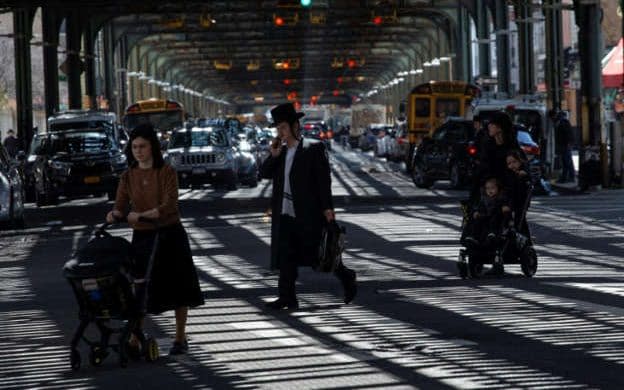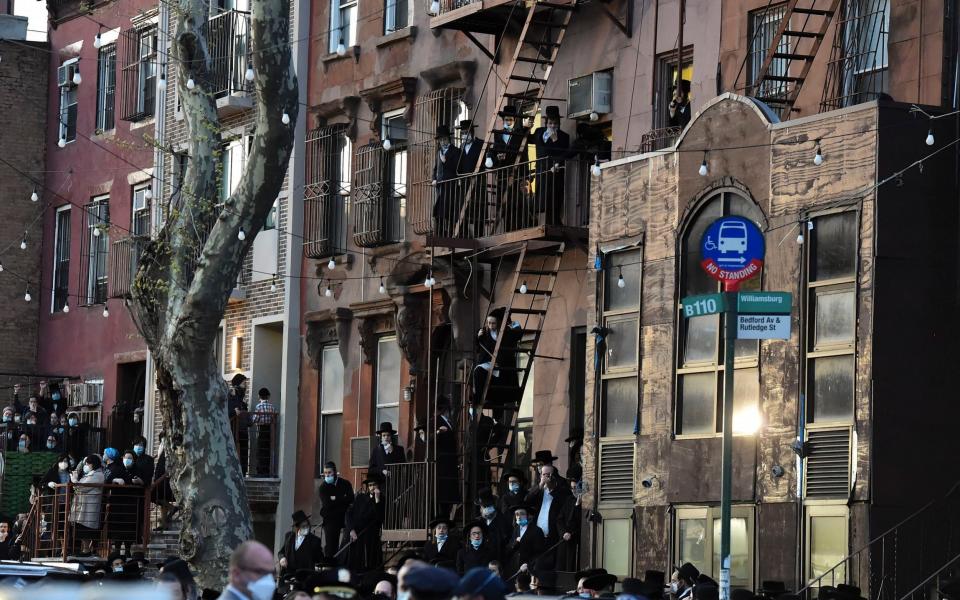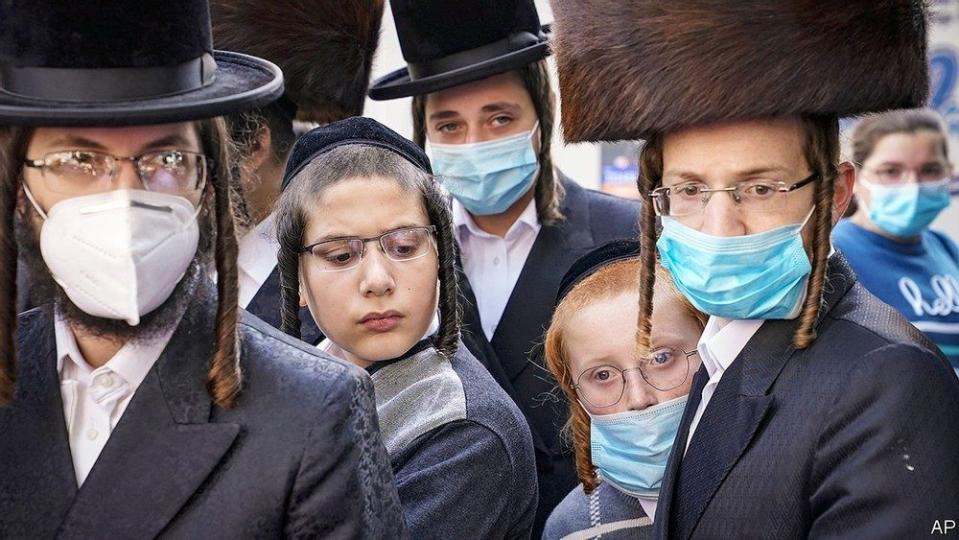Pandemic sees New York's ultra-orthodox Jews turn their back on community

When Covid-19 hit New York’s close-knit ultra-orthodox Jewish community last year it barrelled through it like a tornado. Rabbis began dying, elders fell seriously sick, and within weeks half the insular population had already been infected.
But the pandemic had a much more unpredictable impact too.
With national lockdowns and school closures the traditional Haredi way of life was interrupted, giving many the space for questioning and self-discovery.
That led some to do the unthinkable: consider leaving and starting a life outside the community.
“I’ve been thinking about it for a while,” said 18-year-old Aryeh, who asked to use a pseudonym as he has not yet left. “But last spring I decided I was definitely going to do it.”

Aryeh, who is one of five siblings - “a very small family for the orthodox” he jokes - stopped going to school, or “yeshiva”, that March when they were ordered to shut down.
Aryeh seized on the opportunity he had been waiting for. “I rang the yeshiva myself and said I would not be coming back,” he told The Telegraph one early morning when his parents were out of the house. “I think that would have been much more difficult to do if we had not been on a break with Covid.”
Leaving the community - even if a person continues practising Judaism - is the most egregious offence in the orthodox sect. Aryeh knows once he moves away that he will most likely be shunned by his family, but he has already made his mind up.
He was one of more than 150 people last year to join the New York-based organisation Freidom, which supports former ultra-orthodox navigate culture and language in secular US society.
Founder Gene Steinberg told The Telegraph they saw a big rise in membership and a 50 per cent increase in participation in events - which typically include hikes, cinema and restaurant trips but are currently all virtual.

“There were quite a few who had questioned before now, but suppressed it,” said Mr Steinberg, who himself is an ex-member of the community.
“People just went with the flow, then there was this disruption and they had time to think,” he said. “That gave them space to actually deal with those questions and not suppress them, and kind of dig in a little bit.”
Aryeh said he noticed that parents, who suddenly found themselves having to watch over huge broods at home, were starting to break their own strict rules on technology and give in to smartphones and TVs, exposing their children to new information.
“I spoke about this to a rabbi and he said he saw it as a pandemic of the soul,” Mr Steinberg said. “He told me when people do not have to go to synagogue and not have to go to school, they have a lot of time to think and that leads to no good.”
For the teenage Aryeh that process had already begun.
When had started to have serious doubts about what he was learning at yeshiva, he spoke to his dad. “He just told me not to question anything, he didn’t seem to have any answers,” Aryeh said. “It was then I realised that what I had been taught about our religion, how it was superior, was not necessarily true.”
Mr Steinberg said some had read media criticism of the community's lax approach to the virus.
The most senior rabbis in New York had reportedly been telling the congregation not to worry, encouraging them to forgo masks and continue holding big weddings and funerals, which led to a devastating death toll.
“They start reading what the world is saying about how we're handling it wrongly,” Mr Steinberg told The Telegraph. “Then they start questioning the leadership within the community.”
For them, it seemed to pit the ultra-religious teachings they had grown up with against a prevailing science, and it became increasingly difficult to reconcile.

Mr Steinberg from Freidom, whose name is a play on the Yiddish word for “free”, said a lot of them “test the waters'' with him first. He makes clear that not all of the new leavers have been driven by Covid and that the decision-making process is a long and complex one.
Knowing there is a community of former members helps those like Aryeh see what life could be like after.
Aryeh, whose first language is Yiddish despite being born in Far Rockaway, Queens - where there is a 10,000-strong orthodox population - said without the service it would have been impossible for him to navigate his way out.Mr Steinberg has helped Aryeh with everything from applying for a state driving licence to getting a passport, which has been tricky as he does not even know his birth date in the Gregorian calendar.
“I know by leaving I will be losing a father, so I felt like I had to first find a father figure in the outside world,” he said, admitting he is afraid of the day he will finally have to tell his parents.
Aryeh, who currently works in his father’s textile business, is waiting until he has earned enough money for a few months’ rent before he leaves.
The idea of abandoning ultra-orthodoxy was the subject of the award-winning 2020 Netflix series "Unorthodox," although most of those The Telegraph spoke to had not seen it. Being caught watching such a show has serious risks.
It is not just the Haredi in New York. Israel too has seen an exodus from its ultra-orthodox communities.
An official from the country’s Labor and Social Affairs Ministry, which funds organisations that help new leavers, told the New York Times there had been a “very significant wave” in recent months.
It was just what the rabbis had feared and why some were so insistent on keeping their religious education institutions open in violation of lockdown regulations.
“It’s scary,” Aryeh said of his decision. “But mostly, I’m excited.”

